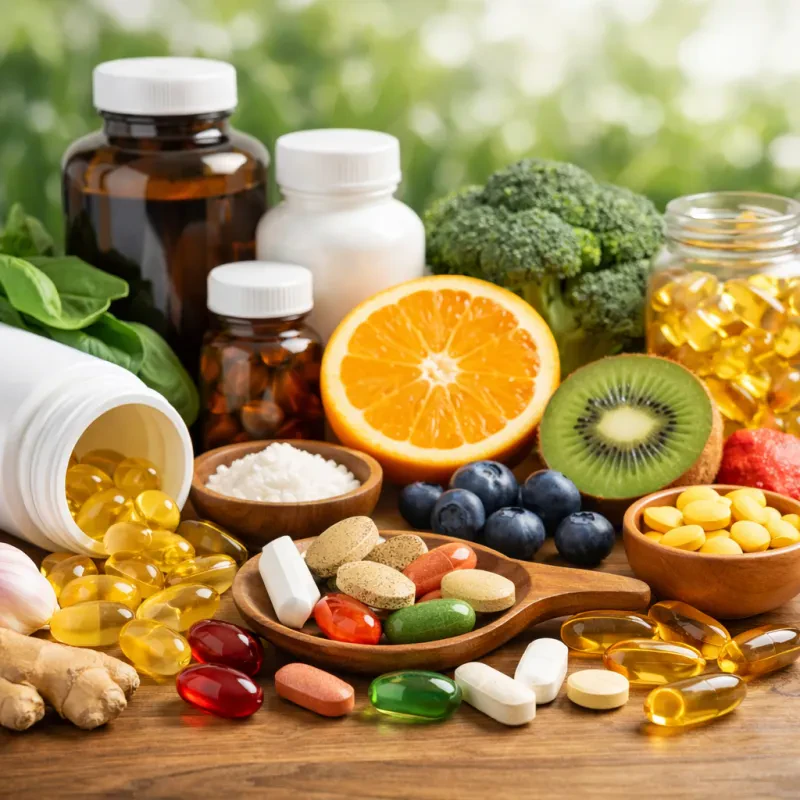Testosterone is a vital hormone primarily produced in the testes in men and the ovaries in women. Although often associated with male traits such as muscle mass and libido, testosterone plays a significant role in both genders. It influences everything from mood regulation and energy levels to the maintenance of bone density. Understanding testosterone is crucial because it impacts various aspects of our overall health and well-being.
As we age, testosterone levels naturally decline, which can lead to several health issues. Low testosterone can result in fatigue, reduced muscle strength, and even mood swings. Men might experience symptoms like decreased sex drive and erectile dysfunction, while women may notice changes in their menstrual cycle or mood. Recognizing these signs early can help you take steps to boost testosterone levels through natural and effective methods.
Several lifestyle factors can influence testosterone production. Regular exercise, particularly strength training and high-intensity interval training (HIIT), has been shown to boost testosterone levels. Additionally, a healthy diet rich in nutrients like zinc and vitamin D is essential for maintaining optimal hormone levels. Managing stress through mindfulness practices can also play a role in keeping testosterone levels balanced. By adopting a healthy lifestyle, you can support your body’s natural ability to produce testosterone.
While testosterone is critical for various bodily functions, it’s essential to approach boosting levels with care and knowledge. Many supplements claim to enhance testosterone production, but it's crucial to research and consult with healthcare professionals before starting any new regimen. Focusing on natural methods allows you to optimize testosterone levels safely, promoting a healthier and more active lifestyle.
Natural Ways to Boost Testosterone Levels
Boosting testosterone levels naturally can be achieved through various lifestyle changes and dietary adjustments. One of the most effective ways to increase testosterone is through regular physical activity. Engaging in resistance training, such as weight lifting, has been shown to elevate testosterone levels significantly. High-intensity interval training (HIIT) is another great option that not only boosts testosterone but also improves overall fitness.
Diet plays a crucial role in maintaining healthy testosterone levels. Incorporating healthy fats from sources like avocados, nuts, and olive oil can help support hormone production. Additionally, consuming adequate protein from lean meats, fish, and plant-based sources provides the building blocks necessary for testosterone synthesis. Don't forget the importance of vitamins and minerals; ensure you include foods rich in zinc and vitamin D, as these nutrients are vital for testosterone health.
Getting sufficient sleep is another natural way to boost testosterone. Studies have shown that poor sleep can lead to lowered testosterone levels. Aim for 7 to 9 hours of quality sleep each night to help your body recover and maintain hormone balance. Reducing stress is equally important since high levels of cortisol, the stress hormone, can negatively impact testosterone production. Practices such as meditation, yoga, or even simple deep-breathing exercises can help manage stress effectively.
Lastly, maintaining a healthy weight is essential for optimal testosterone levels. Excess body fat, particularly around the abdomen, can lead to hormonal imbalances, resulting in lower testosterone levels. A balanced mix of diet, exercise, and healthy lifestyle choices can aid in weight management and, in turn, help keep your testosterone levels in check. By making these simple changes, you can effectively support your testosterone levels naturally.
 Lifestyle Changes for Hormonal Balance
Lifestyle Changes for Hormonal Balance
Making lifestyle changes can have a significant impact on your testosterone levels. One of the first areas to focus on is your diet. Consuming a well-balanced diet rich in whole foods can help optimize hormone production. Foods high in healthy fats, such as avocados, nuts, and olive oil, are essential for healthy testosterone levels. Additionally, incorporating lean proteins and plenty of fruits and vegetables can provide the necessary nutrients that support overall hormonal health.
Another important factor is regular physical activity. Exercise, particularly resistance training and high-intensity interval training (HIIT), can boost testosterone levels. Engaging in these types of workouts can stimulate the production of testosterone and improve muscle mass, which is closely linked to hormonal balance. Aim for at least 150 minutes of moderate-intensity exercise each week to maintain optimal levels of testosterone and overall health.
Sleep is also a crucial component in achieving hormonal balance. Aim for 7 to 9 hours of quality sleep each night. Poor sleep patterns can disrupt hormone production, including testosterone. Creating a relaxing bedtime routine and ensuring your sleep environment is comfortable can help improve your overall sleep quality. Prioritizing rest allows your body to recover and supports testosterone levels.
Lastly, managing stress is vital for maintaining healthy testosterone levels. Chronic stress elevates cortisol, a hormone that can negatively impact testosterone production. Consider incorporating stress-reducing practices into your daily routine, such as meditation, yoga, or deep breathing exercises. Finding time to relax and unwind can significantly enhance your hormonal balance and help keep testosterone levels in check.
Supplements That Support Testosterone Production
When it comes to boosting testosterone naturally, supplements can play a significant role in supporting your body's hormone production. While a balanced diet and regular exercise are crucial, certain vitamins and minerals have shown promise in increasing testosterone levels. Incorporating these supplements into your routine may help you harness your body's potential to produce this vital hormone.
One of the most popular supplements associated with testosterone production is zinc. This essential mineral is vital for various bodily functions, including hormone regulation. Studies indicate that men with low testosterone levels often experience improvements when supplementing with zinc. Additionally, vitamin D is another key player; it not only supports bone health but also has been linked to higher testosterone levels. Spending time in the sun or taking a vitamin D supplement can help optimize your testosterone production.
Magnesium is another overlooked mineral that can contribute to healthier testosterone levels. It helps with muscle function and energy production, and research suggests that increasing magnesium intake may lead to higher testosterone concentrations. Moreover, herbal supplements like fenugreek and ashwagandha are gaining popularity due to their potential to boost testosterone naturally. These herbs have shown positive effects on testosterone levels and can help improve libido and overall vitality.
When considering supplements for testosterone support, it's essential to approach them with care. Always consult with a healthcare professional before starting any new supplement regimen, especially if you're taking medications or have existing health conditions. By choosing the right supplements and combining them with a healthy lifestyle, you can take proactive steps towards maintaining optimal testosterone levels and enhancing your overall well-being.



